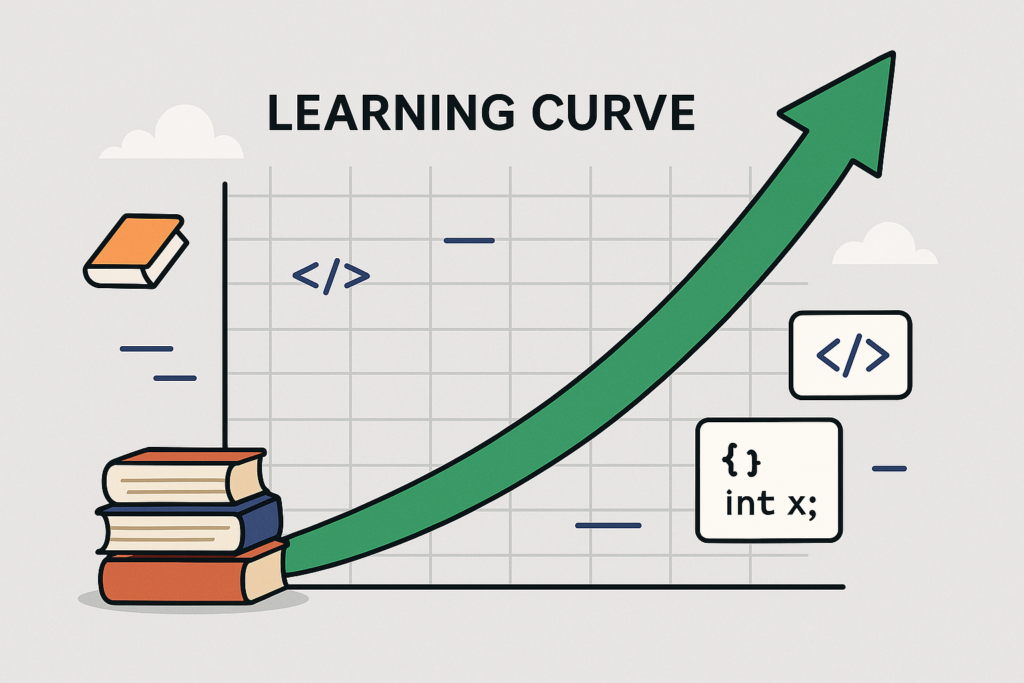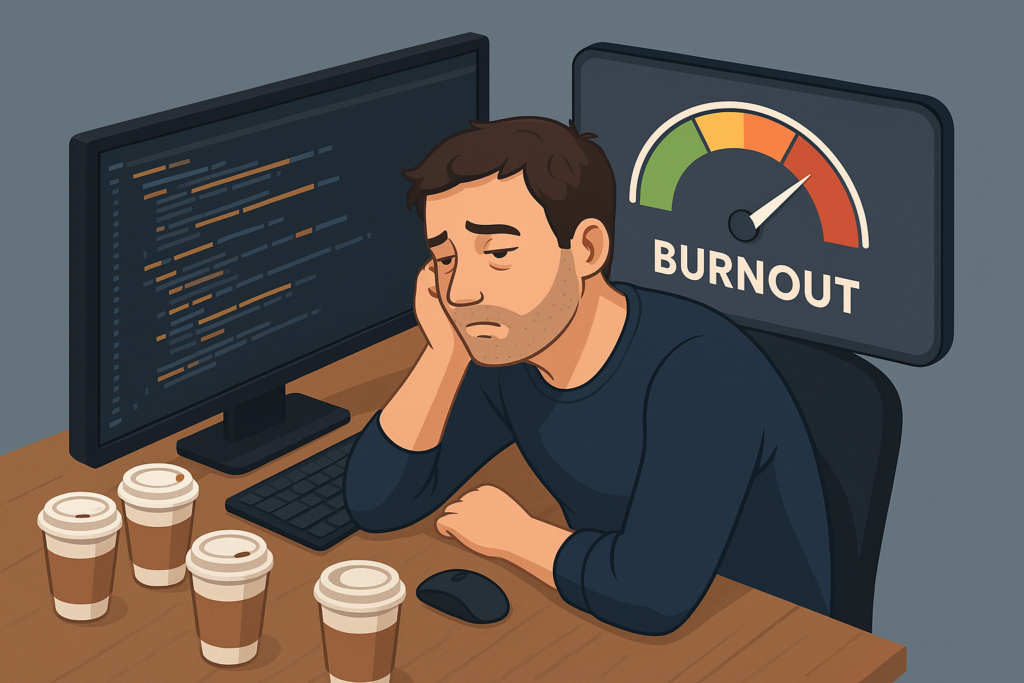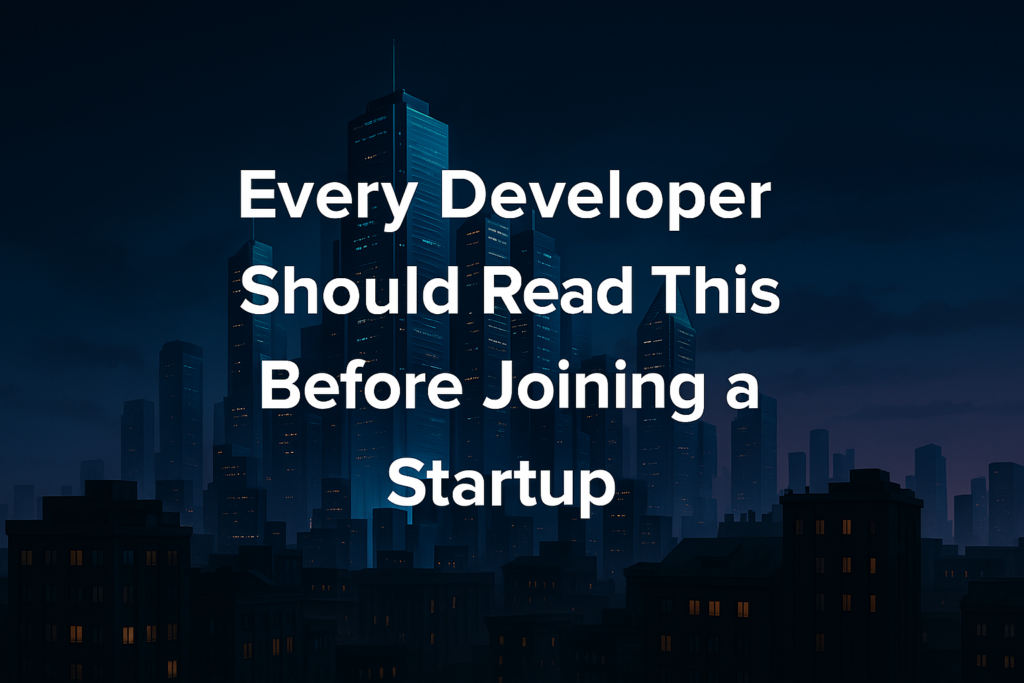So you’ve got an offer for joining a startup as a developer. It’s exciting. The pitch was passionate, the product feels fresh, and they promise you’ll wear “many hats.” Maybe you’re dreaming of building the next unicorn, working directly with founders, or making a name for yourself.
But before you say yes, take a pause.
Joining a startup as a developer isn’t like joining a scaled company. It’s chaotic, raw, and sometimes painfully unclear. It can be the most rewarding or the most frustrating phase of your career depending on what you expect vs. what actually happens.
This is everything I wish someone had told me before I signed on.
1. You’re Not Just a Developer

At a startup, your title is a placeholder. Sure, you’re hired as a developer but that might mean writing backend code one day, setting up servers the next, and debugging the CEO’s internet the day after.
If you want fixed roles, rigid boundaries, or a job description that doesn’t shift weekly, this life isn’t for you.
But if you love building, solving, owning, and improvising? You’ll thrive.
When you’re joining a startup as a developer, your workday rarely looks like what you planned. That unpredictability? It becomes your norm.
2. Velocity Over Perfection

Startups live and die by speed. That shiny architecture diagram you drew? Might not make it to production.
You’ll often ship MVPs, hotfixes, and scrappy code just to validate an idea. Perfection is a luxury. Fast feedback loops, market signals, and iterations matter more.
That said, learn when to slow down and refactor. Technical debt is real, and you’ll either tame it or get crushed under it.
Joining a startup as a developer means embracing this reality: MVP first, polish later.
3. Expect the Unexpected

Features get cut. Funding runs dry. Pivots happen. Entire roadmaps change overnight.
Startups are inherently unstable. If you need predictability, this isn’t your game. But if you’re adaptable and find excitement in the unknown, you’ll build resilience fast.
One day, you’ll laugh at how you wrote a payment system at 2 AM because Stripe broke during launch. These unpredictable moments are par for the course when you’re joining a startup as a developer.
4. Equity Isn’t Cash (Yet)

Founders love to pitch equity. “You’ll own part of the company.” Cool. But ask the hard questions:
- What’s the vesting schedule?
- How many total shares exist?
- What’s the valuation and liquidation preference?
Equity is a bet. Sometimes it pays. Sometimes it’s worthless. Don’t confuse stock options with salary.
5. You’ll Learn More in 6 Months Than Most Do in 2 Years

Because startups move fast and have few resources, you’re forced to do more with less. You’ll likely:
- Own entire modules or systems
- Talk directly with users or founders
- Get exposed to product, marketing, and business strategy
Joining a startup as a developer gives you hands-on access to more than just code. You’re often involved in business decisions, customer feedback, and growth strategy.
You’ll grow fast. Sometimes painfully fast. But that growth compounds like crazy if you stay intentional.
6. Culture Is Set by People, Not Perks

Ping pong tables and free snacks don’t define culture.
Watch how founders treat each other. Observe how the team handles pressure, failure, and conflict. That’s the real culture.
If something feels off, trust that feeling. Culture issues don’t get better with scale, they get magnified.
If you’re joining a startup as a developer, culture fit is just as important as technical fit. Don’t underestimate that.
7. Burnout Is Real, Protect Your Energy

You’ll wear many hats and often work long hours. That’s part of the deal. But boundaries matter.
Burnout doesn’t show up overnight, it creeps in. So learn to:
- Say no when you’re overloaded
- Prioritize ruthlessly
- Take breaks, even if the world is on fire
Your brain is your biggest asset. Don’t fry it.
Especially when you’re joining a startup as a developer, protecting your energy isn’t optional. It’s survival.
Final Thoughts
Startups are wild, intense, and full of stories. If you’re prepared mentally, emotionally, and technically, it can be a career-defining chapter.
But go in with eyes wide open. Ask the hard questions. Know what you’re signing up for.
If you are joining a startup as a developer, remember that it’s not just about the code. It’s about flexibility, ownership, and endurance.
And if you do take the leap, build boldly.
Also read: Developer to Architect From Writing Code to Designing Systems for a deep dive into evolving your tech role beyond startups.


